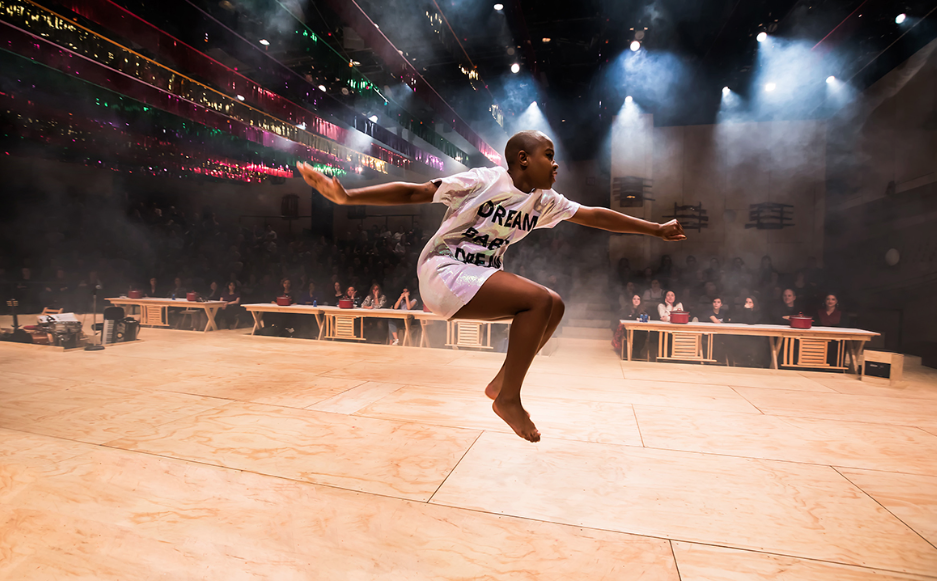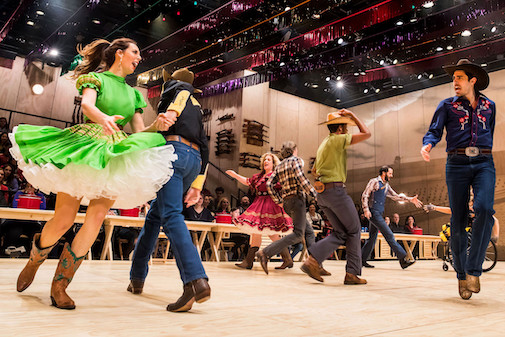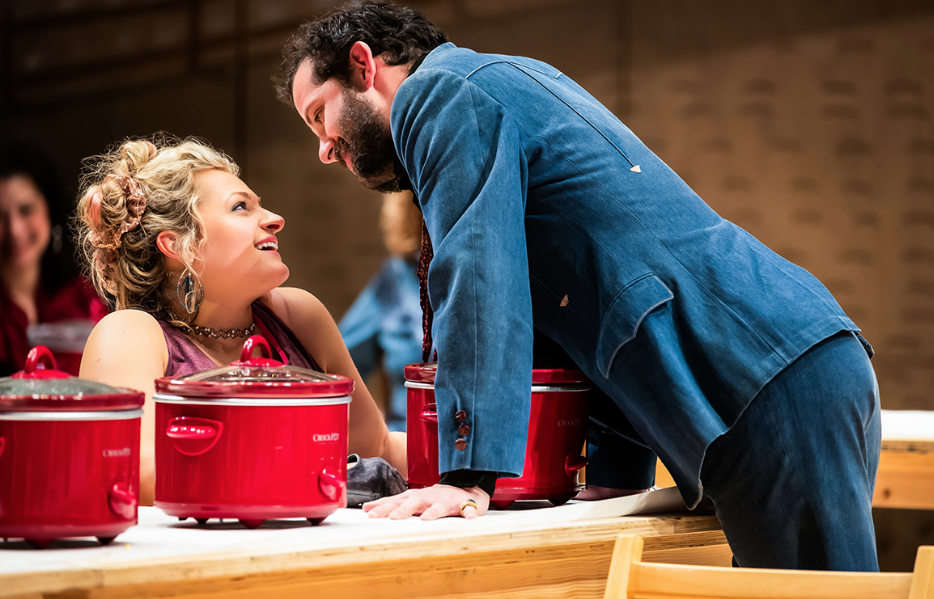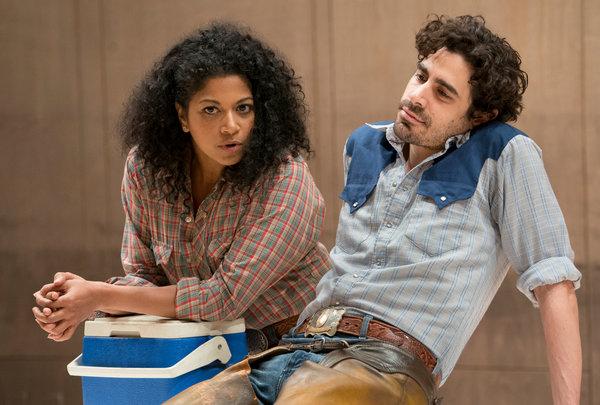by Deborah Lipp
 Gabrielle Hamilton, nominated for a Chita Rivera award, for a very different take on the dream ballet in "Oklahoma!"
Gabrielle Hamilton, nominated for a Chita Rivera award, for a very different take on the dream ballet in "Oklahoma!"
Wow, that was a lot.
Leaving the new Broadway revival of Oklahoma!, a reconceptualization of the show that pulls no punches, I felt a little staggered, like it was too soon to have a celebratory dinner afterwards. (Context: I’m assuming you know the basics of this classic of musical theater, and I won’t consider any of its points “spoilers”. I will hold back potential spoilers, though, for this version.)
Daniel Fish’s unique production changes not one word, either spoken or sung, but it all feels very new...

Circle in the Square, despite being one of Broadway's smallest houses, gives us a space as wide-open as the territory of Oklahoma itself. The house lights are usually all the way up. It feels like we’re at a barn-raising or in the unfinished schoolhouse that Aunt Eller (Mary Testa) is keen to get built. Chili and cornbread are cooking on-stage throughout Act One, and are served to the audience during intermission. All of this tells us that this is real, and now, and not some quaint historical yarn.
The bright lights, apropos of nothing, let me see that I was seated directly across the stage from Tony Shalhoub, who appeared, like the rest of the audience, to enjoy the show thoroughly. Perhaps he was there in support of Will Brill, who plays his son on The Marvelous Mrs. Maisel. On Maisel, Brill is generally a straight man, so I could not have predicted his delightful comedic chops in the role of Ali Hakim.
Ali Hakim, of course, is one of Ado Annie’s two suitors, and here we come to our true scene-stealer. Ali Stroker. Stroker made news last year as the first wheelchair-user to perform on Broadway (in Spring Awakening). It’s clear to me how she broke that barrier—the sheer weight of her talent could knock down any wall. She’s hilarious as well as a terrific singer. “I Cain’t Say No” is a total show-stopper.
 Will Brill and Ali Stroker are scene stealers in "Oklahoma!"
Will Brill and Ali Stroker are scene stealers in "Oklahoma!"
Reviews have made much of how dark this show is. The thing is, though, that Rogers and Hammerstein wrote it dark. Judd Fry (Patrick Vaill in this production) has always haunted me. He is the original incel, and thinks Laurey owes him love simply because he gloomily wants her. I wonder, were I to survey all the reviews surprised at this show’s darkness, if their authors will be mostly or entirely male. To me, Oklahoma! has always had the threat of sexual violence at its core.
Rogers and Hammerstein’s first two musicals (this was followed by Carousel) are about emerging sexuality, its threats and its joys. They each have innocent but horny women attracted to dangerous, sexy men, and wondering why these feelings are so intense and how they’re supposed to be “good” in the face of them. In both shows, the main romance is contrasted with a more humorous one. But Ado Annie’s dilemma (she can’t say no) is not so different from Laurey’s (she can’t say yes). Sex looms over everything, threatening to destroy these young women even as it offers to delight them.
This revival allows the threat to breath. I have to say, I didn’t love Rebecca Naomi Jones’s cool, removed performance as Laurey. She seemed more wounded than coy. But everything else worked wonderfully—the unusual staging, the unusual use of lighting, the modern costumes—it all added up. The Dream Ballet is replaced by a modern dancer (the stunning Gabrielle Hamilton) doing a solo interpretation of Act 1. It didn’t entirely work for me, but it was beautiful to watch and honestly, the ballet never really worked for me before either.
 Rebecca Naomi Jones and Damon Daunna as Laurey and Curly in "Oklahoma!"
Rebecca Naomi Jones and Damon Daunna as Laurey and Curly in "Oklahoma!"
And then there’s that ending. We know this show ends in violence. It’s there in the original, a little softened but still horrific in the movie, so when you’re “warned” about it, it’s hard to know what to expect. All I’ll say is, it’s stunning how fast it all seems. Again, the book wasn’t changed at all, so I assume it’s always been basically that fast, but it felt like, WHAM BAM how did we get here? Which is what Laurey, too, asks. How could this happen? The show offers no answers, and truly, it was hard to leave the theater. I wanted to stay and process.
related:
Tony Award Nominations 2019